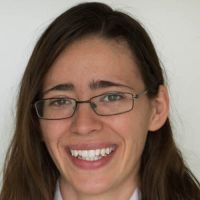Dr. Martha Dellar

Project
Track: Post-doc
Tags
Promotor
prof. dr. Eric van Gorp, prof. dr. Frederique Bartumeus
Co-promoter(s)
Maarten Schrama, Eline Boelee
Institute
Deltares, CML Leiden
Description Post-doc
I am mainly focused on constructing future change scenarios for the Netherlands (possibly extending these to the whole of Europe). These will include climate, land-use, agricultural practices and livestock numbers, distribution of water and the presence of water bodies, human demographics and the transport of vectors and hosts both into and within the Netherlands. These scenarios will account for a range of possible changes based on a variety of factors, such as social and economic growth, governmental focus on sustainability, and the level of international cooperation. All these different aspects of the future scenarios will affect the risk of vector-borne virus outbreaks in some way. For example through changing mosquito populations, the chance of virus introduction and the speed at which a virus could spread once it’s introduced. Several of the PhD projects will use these scenarios to assess the risk of future viral outbreaks and to investigate the best ways to combat such events.
The other part of my work relates to modelling. I am involved in constructing a dynamic mosquito population model which can be applied on a national scale. I am also involved in seeing how all the different models being developed in this project can be combined to gain a holistic picture of the risk of future vector-borne viral outbreaks in the Netherlands.
Tags matching with the contents of Post-doc position
Methods
-
Modelling
- Species distribution: Working with PhD12 to build mosquito model. May also look at modelling the distribution of various host species (if not done as part of other projects)
- Ecological modelling: Working with PhD12 to build mosquito model. Will also potentially be creating (or using existing) models for ecosystem processes to predict how things will change in the future
Topics
-
Vector
- Vector abundance: Working with PhD12 to build mosquito model.
- Vector movement patterns, migration: Working with PhD12 to build mosquito model. Will also look at travel of mosquitoes into the Netherlands as part of my work on future scenarios.
- Vector movement patterns, dispersal: Working with PhD12 to build mosquito model. This will potentially include dispersal
- Habitat suitability: Working with PhD12 to build mosquito model. This will include habitat types
Host
- Host abundance: Will look at how this is likely to change in the future.
- Host movement patterns: Will look at how this is likely to change in the future.
Environmental
- Water: Will look at how this is likely to change in the future. Including where water bodies are, their size and water quality
- Climate: Will look at how this is likely to change in the future.
- Habitat type: Will look at how land use and water bodies will change in the future
- Pollution: Will look at how this is likely to change in the future
Species
-
Species
- Human: Will look at how demographics will change in the future
- Bird: Will look at how distributions are likely to change in the future
- Mosquito: Working with PhD12 to create mosquito model and will use this to see how mosquito populations are likely to change in the future
- Other arthropods: Maybe? Not sure
- Domestic animal: Will look at how agriculture (and therefore livestock) will change in the future
- Wild mammal: Will look at how wild mammal populations are likely to change in the future